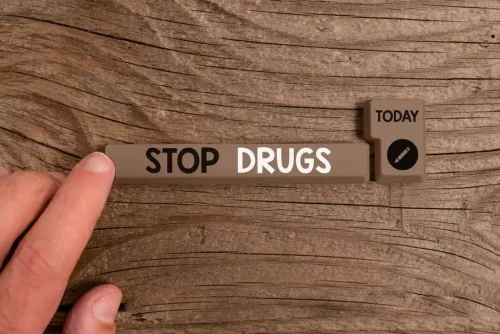
Having a sense of gratitude replaces embarrassment and frustration with thankfulness. A grateful person isn’t ashamed to thank a friend for checking in on them. Instead of being frustrated over cravings and withdrawal https://ecosoberhouse.com/article/top-10-substance-abuse-group-activities/ symptoms, gratitude leads to a thankfulness for being able to overcome without indulgence in drugs or alcohol. Gratitude for even the smallest courtesies can promote a consistent sense of thankfulness.
- Chances are if you have been in recovery for more than a day or two, you have heard someone talk about gratitude.
- Part of her mission as Chair is to help eliminate the stigma around substance use disorder and to advocate for harm reduction as an integral part of drug policy.
- She spends most of her free time exploring the Catskill Mountains foraging for edible/medicinal mushrooms and plants, and spreading the message of radical compassion through Harm Reduction.
- Ms. Kennedy is passionate about providing Narcan Training and education for Opioid Overdose to those in the surrounding neighborhoods.
- While you may have regrets about your addiction and past, use the power of words to help you move on to a place of acceptance.
- It works by helping us to shift our perspective from one of lack or negativity to one of abundance and positivity.
Frequently Asked Questions About The Power of Gratitude in Sober Living
- To overcome negative thinking with gratitude, start by acknowledging even the most mundane blessings in your life.
- It can help you divert your attention away from substance use to focus on what fulfills you.
- Yes, cultivating a thankful mindset can be used in conjunction with other addiction recovery methods, such as therapy, support groups, and medication-assisted treatment.
- Practicing gratitude can provide reminders of reasons to stick with a recovery plan, a motivation to regain important things lost to substance abuse, and a way to turn attention away from addiction toward healthier things.
Jon has become a cornerstone of the peer recovery movement in the Rochester region. He is heavily involved in community outreach programs, grassroots recovery community organizations, and advocacy groups/events. Jon also serves as ROCovery’s Boxing Conditioning Coach, ASFA Certified Kettlebell Instructor, and Outdoor Program Team Member. Jon is a NY State Certified Recovery Peer Advocate (CRPA), CRPA-Family, Certified Addiction Recovery Coach (CARC), a CCAR curriculum trainer and is currently working towards his CASAC credentialing.
Myth 4: Gratitude is hard to practice
We set out to address these questions in a recent research study involving nearly 300 adults, mostly college students who were seeking mental health counseling at a university. We recruited these participants just before they began their first session of counseling, and, on average, they reported clinically low levels of mental health at the why is gratitude important in recovery time. The majority of people seeking counseling services at this university in general struggled with issues related to depression and anxiety. Gratitude is synonymous with thankfulness, but it’s more than that too. Gratitude is a feeling, but it is also an expression of thankfulness for what you have and what you appreciate in your life.
Gratitude is Good for Your Body, Mind, and Spirit

The third group was asked to write about the negative and positive events that affected them. After 10 weeks of study, those who wrote about gratitude were more optimistic and felt better about their lives. They also worked out more and had fewer doctor visits than those who focused on what irritated or displeased them as well as the third group who wrote about the negative and positive events that affected them. When AA uses the phrase “An attitude of gratitude” they often mean “practicing gratitude”. This means that you should be grateful for everything as part of your life and consistently recognize and be aware of the good things that happen to you, no matter how small.

Gratitude can show others that you do not take your second chance at life for granted. By expressing thankfulness for everything you have in your life, you can shift your mindset from focusing on what you lack to appreciating all the wonderful things you have going for you. Gratitude opens the door to positive emotions and experiences that can nourish our minds and bodies. Simply taking a moment to count our blessings can lift our spirits and remind us of all that we have to appreciate in life.